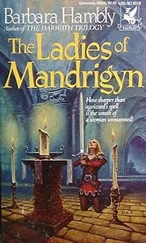Barbara Hambly - 04 Sold Down the River
Здесь есть возможность читать онлайн «Barbara Hambly - 04 Sold Down the River» весь текст электронной книги совершенно бесплатно (целиком полную версию без сокращений). В некоторых случаях можно слушать аудио, скачать через торрент в формате fb2 и присутствует краткое содержание. Жанр: mystery, на английском языке. Описание произведения, (предисловие) а так же отзывы посетителей доступны на портале библиотеки ЛибКат.
- Название:04 Sold Down the River
- Автор:
- Жанр:
- Год:неизвестен
- ISBN:нет данных
- Рейтинг книги:4 / 5. Голосов: 1
-
Избранное:Добавить в избранное
- Отзывы:
-
Ваша оценка:
- 80
- 1
- 2
- 3
- 4
- 5
04 Sold Down the River: краткое содержание, описание и аннотация
Предлагаем к чтению аннотацию, описание, краткое содержание или предисловие (зависит от того, что написал сам автор книги «04 Sold Down the River»). Если вы не нашли необходимую информацию о книге — напишите в комментариях, мы постараемся отыскать её.
04 Sold Down the River — читать онлайн бесплатно полную книгу (весь текст) целиком
Ниже представлен текст книги, разбитый по страницам. Система сохранения места последней прочитанной страницы, позволяет с удобством читать онлайн бесплатно книгу «04 Sold Down the River», без необходимости каждый раз заново искать на чём Вы остановились. Поставьте закладку, и сможете в любой момент перейти на страницу, на которой закончили чтение.
Интервал:
Закладка:
And from the upper deck, Jean-Luc's voice called shrilly, "You give that here! That's mine! It's MINE! " followed by strident and uncomforted tears. Madame Helene remained in the women's cabin, prostrate with shock at what she had undergone.
She recovered sufficiently to go down to the ship wharves the following day, however, in company with January, Hannibal, a slightly singed and bruised Lieutenant Shaw, Madame Fourchet, and a trio of stout, blue-clothed City Guards, and intercept her husband as Robert was boarding the steam packet Anne Louise. January went with Shaw and his minions along the crowded levee, while Hannibal and the women waited in the market arcade, at the same little table by the coffee-stand where January had so often sat with Rose. It was unlikely, Shaw said, that Robert Fourchet would recognize a tall, well-dressed gentleman of color as one of his father's field hands.
But January would certainly recognize him.
The sailing-ship wharves lay downstream of the French town, the levee jammed at this time of the year with the world's commerce. Hogsheads of sugar, pipes of wine, bales of cotton; voices clamoring in every language God distributed at Babel: whores and Yankee sailors and Greek oyster-fishers and market women selling bandannas. Clothed in his high beaver hat and new black nip-waisted coat, January strolled toward the Anne Louise and scanned the faces, looking not only for Robert, but for Kiki.
January was still not entirely certain what he felt about Kiki. She had murdered an innocent man, and had calculatedly and coldly murdered a guilty one, not to free herself from him, but out of pure revenge. If you cut us, do we not bleed? Shylock had asked of men who, later in the play, had put their boots on his neck and made him eat filth. Having only sipped the cup Kiki had drunk of all her life, January understood exactly why she had done what she had done.
But he understood too that pain and fear are no pardon for murder. On the whole he was glad that Kiki had drugged him-in his exhaustion it had not taken much-and made her escape. He was fortunate, he supposed, that she hadn't killed him as he slept. She was quite capable of it. If he saw her on the wharf he knew he must-and would-raise a hue and cry.
But he did not. He did, however, see Robert Fourchet, decorously clothed in mourning black, hastening along the levee toward the Anne Louise, with a new valet carrying his valise in his wake. January raised his tall beaver hat and wiped his forehead, which was the signal, and Shaw and his myrmidons closed in.
He was close enough to hear Shaw say, "Mr Fourchet?"
There was a momentary hesitation; January thought he saw the young man's eyes dart among the crowd, pick out the blue-clad forms of the City Guard moving in on him. "I'm Robert Fourchet, yes."
"If n you'd care to come along here to the market for a minute, there's a couple ladies would like to have a word with you."
"Thank you." Marie-Noel Fourchet rose from her seat after Robert had been led away, and walked across to where January stood, unobtrusive in the curious silent way he'd practiced since early adolescence, against the brick pillars of the market. She'd put back her veils of mourning crepe to speak the few words that identified her stepson as the man who'd held her at gunpoint, forced her to drink opium, left her and her family unconscious in a burning house. In their sooty frame her triangular, homely face looked even paler and more lashless. She held out a black-gloved hand.
"M'sieu Sefton tells me you were working for my husband." She nodded back toward the table under the arcade, where Hannibal was charming Madame Helene out of the hysterics that she'd considered an appropriate accompaniment to her husband's arrest. "That you tried hard to save him."
At the table, the dark, florid woman-in crepe and jet beads and veils to her knees despite the fact that she was mourning only a father-in-law-clutched Hannibal's hand and sobbed, "We have been left destitute! Destitute!"
"Will you be all right, Madame?" asked January. Whatever the courts decided to do with January's evidence from the slaves and Madame Fourchet's account of an attempted murder, Robert's valise had contained two of Thierry's pistols, which could have come into his hands no other way. The rest, January surmised, could safely be left to Shaw.
"I think so. Robert had most of the fifty thousand dollars those men paid him for the slaves..." Marie-Noel raised her glance to January's face. "Were all of them killed?" Tears glimmered in her pale eyes.
"I think so, Madame. Some of them got into the water before the boat blew up, but not many, I don't think. And the boat was out in mid-river by then, and rolling with the current. I myself barely got to shore."
She bit her lips and crossed herself. "Those poor people," she whispered in real distress, that had nothing in it of sorrow over the loss of an investment of a hundred and fifty thousand dollars. "Those poor people." A gawky, familiar figure edged its way toward them through the gaudy press of market women and keelboat thugs, stevedores and flaneurs, and January recognized Esteban, followed closely by a tubby, pleasant-faced little gentleman wearing an overly elaborate lilac-striped cravat.
The pair paused by Hannibal and Madame Helene, and Hannibal gestured toward where January and Madame Fourchet stood. January heard Esteban say, "... settlement out of court... sixty thousand dollars plus help to get the rest of the harvest in..."
Evidently, January thought, in spite of losing all their slaves, Marie-Noel-and the child she carried-were not going to starve.
"Hannibal tells me my husband agreed to pay you for your time and your pain." Madame Fourchet opened the beaded reticule at her belt, and drew out a stiff piece of pale brown paper-a draft on the Louisiana State Bank for five hundred dollars. "I'm sorry it cannot be more, for we owe you more than we can say, Esteban, and my... daughter-in-law..."-her voice stuck on the words-" and myself. But we've lost most of the crop, and it will take everything we have to keep the plantation itself. I hope you understand."
January took the paper from her black-gloved hand. "I understand, Madame." They'd probably sell the town house, he guessed. And use the proceeds, and the settlement, to buy more slaves.
And after everything that he had passed through, to save the people who'd plunged into the river, the people among whom he'd lived, nothing had changed.
Vast weariness crushed him and he wanted to tear the bank-draft up and walk away, rather than have anything further to do with the Fourchet family. Even that five hundred dollars, he understood, had come from human sweat and human blood. His mother's and his friends' and his own.
But he put it in his pocket.
"You must not think too harshly of my husband," said Madame Fourchet, in her soft, gruff voice.
"He was a man who lived with a great deal of pain in his heart. He did the best he could."
January recalled the dark face creased with rage, that yelled at him in nightmares. The sickening slap of a broom handle on his flesh and the sound of his own ribs breaking.
Screams in rainy darkness. The stink of cigar smoke. I have tried to make amends where I can.
This woman, he thought, looking down at her, had sat beside his bed all through that night, while his son sat out in the rain for the pleasure of hearing him die. "Did you love him, Madame?" he asked.
"Yes," she said. "Yes, I did," and there was no mistaking the warmth in her eyes, as she drew her veils down.
She turned and walked back to her family, leaving January alone.
"So they all live happily ever after," said January a few nights later, as he walked Rose home from supper at Dominique's house. His sister's white protector was still on the family plantation, seeing to the last of the harvest, and Minou was taking advantage of the chance to entertain friends of color who would not, of course, be admitted to her house when a wealthy white gentleman was either there or expected to arrive. "Esteban with his dear friend M'sieu Molineaux, Madame with her child, Madame Helene as a poor relation among the Prideaux clan... She's apparently suing her mother-in-law for upkeep, on the grounds that they had enough money to give me five hundred dollars."
Читать дальшеИнтервал:
Закладка:
Похожие книги на «04 Sold Down the River»
Представляем Вашему вниманию похожие книги на «04 Sold Down the River» списком для выбора. Мы отобрали схожую по названию и смыслу литературу в надежде предоставить читателям больше вариантов отыскать новые, интересные, ещё непрочитанные произведения.
Обсуждение, отзывы о книге «04 Sold Down the River» и просто собственные мнения читателей. Оставьте ваши комментарии, напишите, что Вы думаете о произведении, его смысле или главных героях. Укажите что конкретно понравилось, а что нет, и почему Вы так считаете.







